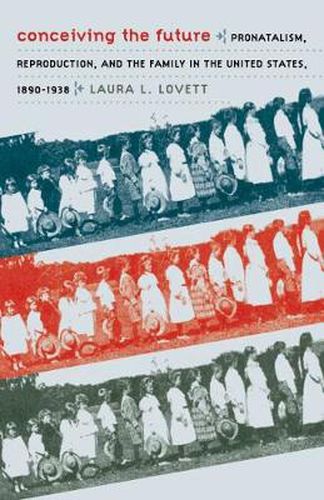Conceiving the Future: Pronatalism, Reproduction, and the Family in the United States, 1890-1938
Laura L. Lovett

Conceiving the Future: Pronatalism, Reproduction, and the Family in the United States, 1890-1938
Laura L. Lovett
Through nostalgic idealizations of motherhood, family, and the home, argues Laura Lovett, influential leaders in early twentieth-century America constructed and legitimated a range of reforms that promoted human reproduction. Their pronatalism emerged from a modernist conviction that reproduction and population could be regulated. European countries sought to regulate or encourage reproduction through legislation; America, by contrast, fostered ideological and cultural ideas of pronatalism through what Lovett terms nostalgic modernism, which romanticized agrarianism and promoted scientific racism and eugenics. Lovett looks closely at the ideologies of five influential American figures: Mary Lease’s maternalist agenda, Florence Sherbon’s eugenic fitter families campaign, George Maxwell’s homecroft movement of land reclamation and home building, Theodore Roosevelt’s campaign for conservation and country life, and Edward Ross’ sociological theory of race suicide and social control. Demonstrating the historical circumstances that linked agrarianism, racism, and pronatalism, Lovett shows how reproductive conformity was manufactured, how it was promoted, and why it was coercive. In addition to contributing to scholarship in American history, gender studies, rural studies, and environmental history, Lovett’s study sheds light on the rhetoric of family values that has regained currency in recent years.
This item is not currently in-stock. It can be ordered online and is expected to ship in approx 2 weeks
Our stock data is updated periodically, and availability may change throughout the day for in-demand items. Please call the relevant shop for the most current stock information. Prices are subject to change without notice.
Sign in or become a Readings Member to add this title to a wishlist.


